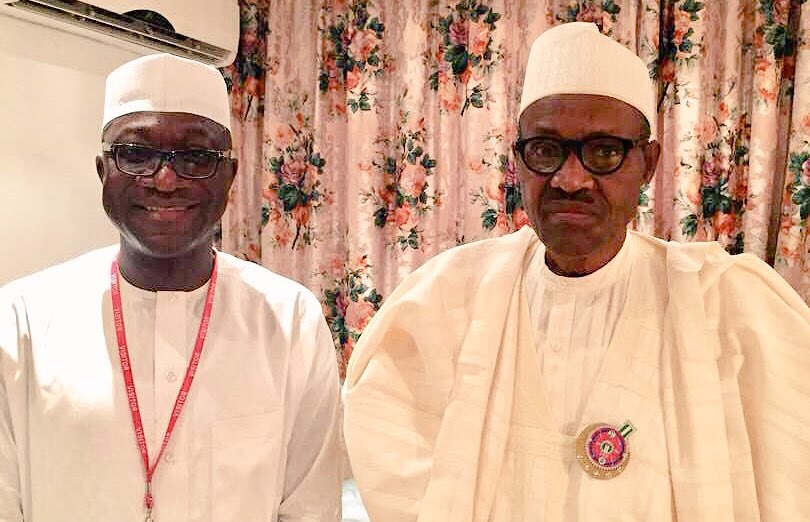BY BIN ZAK
The Nigerian political setting is bedevilled with numerous obstacles. But a visit to her political history would serve as illumination to the source and panacea to these problems. The political epoch in Nigeria can be classified into three phrases; the pre-colonial epoch, the colonial epoch and the post-colonial epoch.
The pre-colonial epoch was a period before the advent of colonialism. It should be noted that many independent geographical entities sum up the present territory known as Nigeria. Likewise each territory adopted a political system of government that was not only traditional in nature but also well acknowledged by their people. For instance, the Oyo Empire(Yoruba land) adopted a monarchical system of government. Due to some factors particularly war, many independent Kingdoms split out from the Empire. Each of these Kingdoms was headed by an Oba who was the apex authority. However, the Oba didn’t possess absolute power because his actions must not negate the customs. Any Oba who disapproved his people’s will or custom might be compelled to abdicate throne for demonstrating dictatorial tendencies or incompetence.
Among the Yoruba people, the kingship position is held sacred. Likewise the right to attain throne is hereditary. In the Yoruba kingdom, the laws that guide people’s conduct have been in existence since antiquity. There were no written laws except the laws and customs that were being handed down from one generation to another which became the established principles.
Advertisement
Similarly, the people of a geographical entity presently referred to as the Igbos had a decentralized political system characterized with the principle of “acephalous”(absence of a centralised government). It’s therefore a chiefless and classless society. However, few towns like Onitsha had what akin to a recognized chief. Administratively, the highest decision making body was the “town assembly,” a platform where cogent and critical issues were deliberated upon by the entire villagers before decisions were made and implemented. However, the council of elders, the Ofor title holders,the Ozo title holders, the age grades among other groups were also set in place for administrative convinence. Any of these groups could unilaterally take decisions on behalf of the the whole village as long as such decisions were in tandem with public interest.
While the pre-colonial administration in the Habe(Hausa) land was totally different from the aforementioned entities that constituted Nigeria. The Habe political history was classified into a period before Jihad and post Jihad. Particularly sometime in 1050, the Habe kingdom(Pre-Islamic name for the Hausa kingdoms) thrived at Daura before the emergence of other six kingdoms-Kano, Gobir, Katsina, Zaria, Biram and Rano. Though Daura was the heart of the Habe Kingdom, eventually the rest breached out as independent states and were taken political actions autonomously until 1804 when Usman Dan Fodio staged a revolution known as the “Fulani Jihad” and took over the leadership mantle of Habe kingdom. It’s a political, economic and social revolution. Usman Dan Fodio changed the name of Habe Kingdom to Hausa/Fulani kingdom. He also introduced a new system of selecting and appointing rulers described as “Emirs to rule the Caliphate.” It’s an outstanding centralised political system of government with adherence to Sharia laws.
In the early 1900s, unhealthy political and economic rivalries gained momentum among the European nations. It’s this competition that induced numerous European nations to invade Africa, the territory endowed with natural resources. This signified the colonial epoch in African territory and the present Nigeria inclusive. In order to alleviate the growing tension on the division and annexation of these brand territories among them, a conference was held at Berlin, Germany in 1884-1885. A sharing formula was formulated and it’s termed “the General Act of the Berlin Conference 1884-1885.” This act gave delivery to Nigeria from the existing territories. Moreover, in Flora Show article published in Times of London in 1897, it’s posited that Nigeria was created from different territories for administrative convenience. Summarily, it could be deduced that Nigeria was created to promote the colonial masters personal aggrandizement.
Advertisement
Nigeria attained independence in 1960. However, the country is yet to despise the Colonial and Western policies which unsuited her political history. Almost every system of government practised in Nigeria since independence has been the Western or Colonial script, while this is causing an outright impediment to Nigeria’s progress and development. The creation of states from the former regions, the change of Nigerian system of government from the Parliamentary system to Presidential system and the principle of Federal Character aimed at unravelling the country’s political conundrum in the past were imbibed from the Western world or Colonial masters, till present the political conundrum remained insoluble. History makes it conspicuous that the people who made up the present Nigerian territory were politically, historically and culturally varient before the advent of Colonialism. Since the Nigerians have attained political liberty, it’s pertinent that any adopted political system incorporated the interest of her constituents. This interest would be more guaranteed if these constituents have autonomy to make certain crucial decisions.
With the adoption of the aforementioned postulation, the Nigerian political imbroglio would evaporate or reduce to the bare minimum. Additionally, granting the Nigerian constituents autonomy would hasten rapid growth in the country because each constituent would attempt to outshine the other. Likewise, it paves way for popular political participation and sense of responsibility among the political leaders. Moreover, it allows people to rise easily against any irresponsible political leader. It’s a system practised in Nigeria between 1964-1966. The system collapsed then because it’s a colonial establishment yet the country witnessed rapid growth.
Binzak Azeez writes from the faculty of law O.A.U
Advertisement
1 comments







nice piece bro….well served